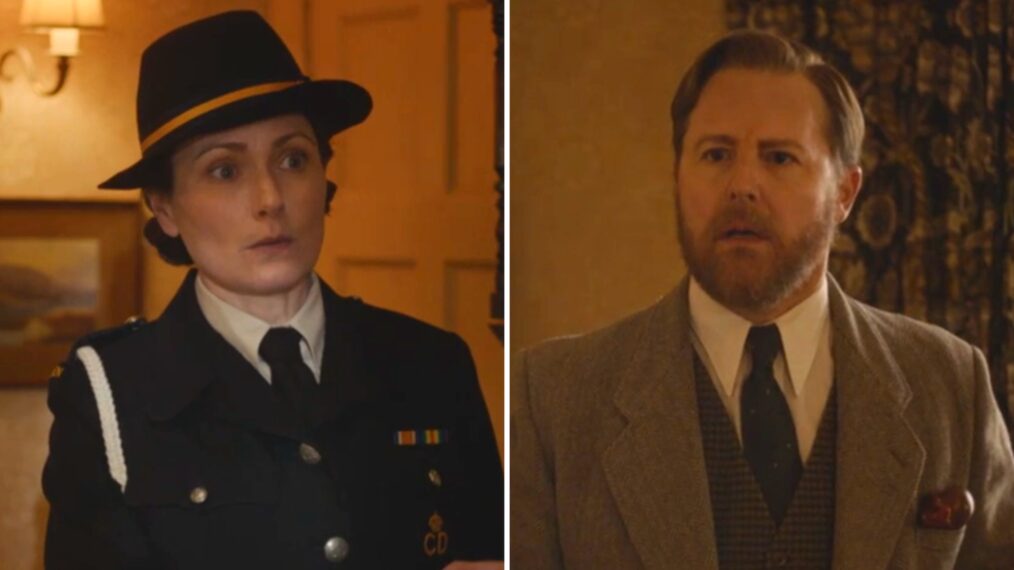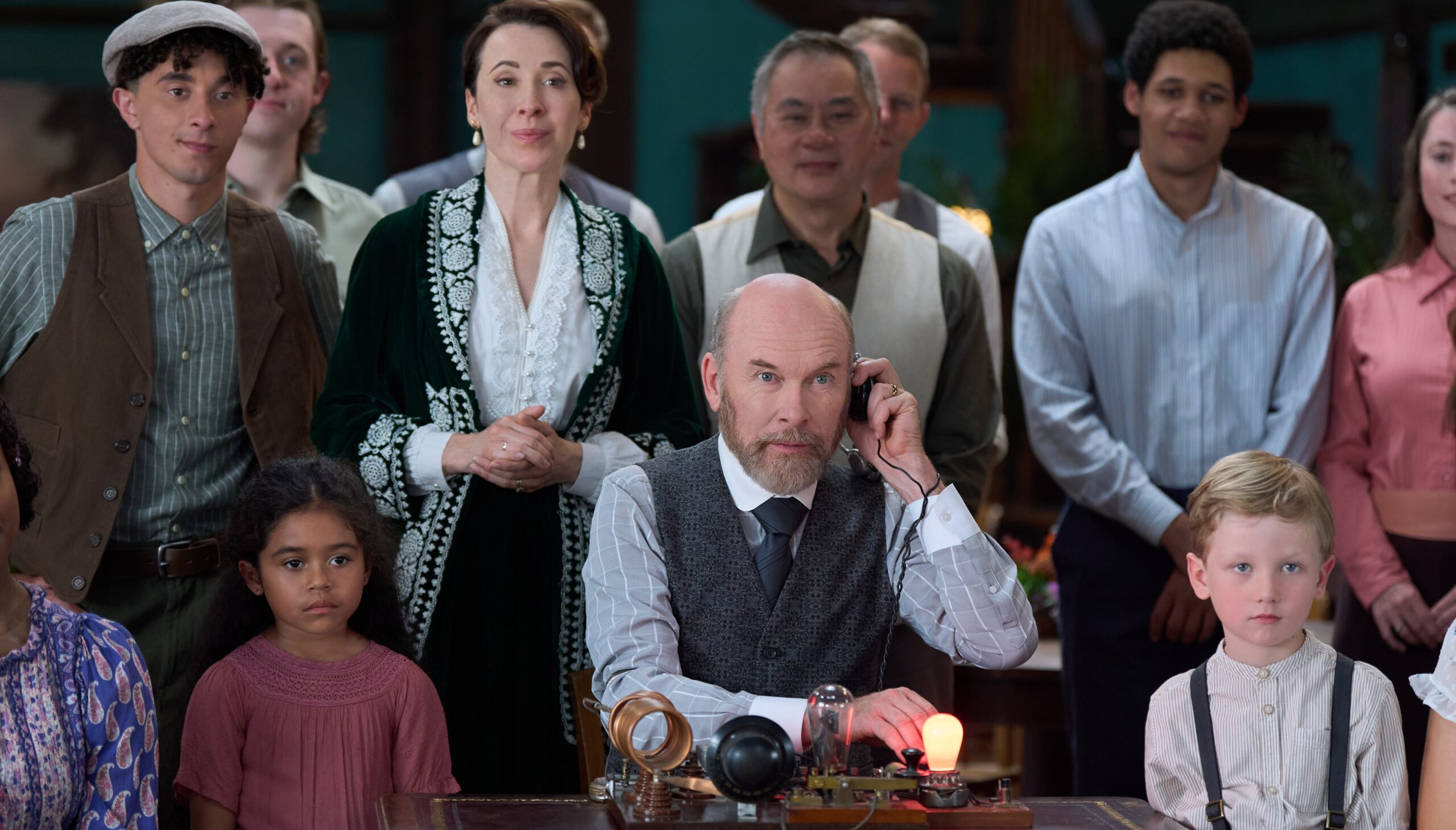Released in 1996, and co-directed by makeup effects artist Kevin Yagher and Joe Chappelle, fourth franchise installment Hellraiser: Bloodline served the dual role of being a prequel and a sequel, telling a centuries-spanning story that documents the puzzle box’s beginning and end. While horror fans have come to appreciate the ambitious “Pinhead in Space” movie in recent years, it’s the behind the scenes drama of the production that often takes center stage.
For starters, Kevin Yagher was replaced by Joe Chappelle before production was completed, and both filmmakers ultimately declined to have their names attached to the finished product.
That’s why Hellraiser: Bloodline is credited to the fake director “Alan Smithee.”
As Meagan Navarro explained here on BD back in 2020, “Writer Peter Atkins and director Kevin Yagher originally envisioned a sprawling story that took place in three separate timelines, with the past, present, and future tied to a single man. He’s reincarnated in each period to design a box that destroys the demons unwittingly summoned by his ancestor. It was a linear, special effects-laden sequel with Pinhead taking a backseat to new characters.
“Budgetary limitations caused the trimming of scenes and characters during production, however. Then, when Yagher turned in his 110-minute initial cut, Miramax balked. That Pinhead didn’t even appear on screen until roughly 40 minutes in exacerbated their frustration. They demanded rewrites and an expanded role for Pinhead. Yagher left, and the studio brought in Joe Chapelle to helm extensive rewrites that dramatically altered Angelique, Pinhead, and Lemarchand’s storylines. The final cut was reduced to 85-minutes.”
Meagan added, “While the theatrical version of Bloodline isn’t without merit, especially in hindsight with the sequels that followed, it’s hard not to mourn what could’ve been.”
But let’s talk about what actually did make it to the screen in 1996…
Playing out like a Hellraiser anthology film, Hellraiser: Bloodline‘s first story in the theatrical cut is set in 18th century France, where we meet box creator Philip LeMarchand. A master toymaker, LeMarchand is hired by an evil magician to build the iconic box, having no idea what it’s going to be used for. As it turns out, the madman is looking to open a portal to Hell, and he does just that – giving rise to the very first Cenobite, a female named Angelique.
We eventually jump forward to 1996, which was present day at the time of the film’s release. Angelique travels to New York in an effort to locate John Merchant, an engineer with family ties to LeMarchand. Driven by supernatural forces, Merchant is compelled to build a skyscraper that is literally a massive puzzle box, and Angelique – along with Pinhead – intends to use it as a much bigger portal between Hell and the real world.
The final story, which is essentially the wraparound segment, is set on a space station in the year 2127. There we meet Paul Merchant, another distant relative of LeMarchand’s who is continuing his family’s work. Merchant willingly summons Pinhead and his Cenobites aboard the ship, which happens to be modeled after the puzzle box, and he plans on blowing the whole thing up once they arrive – ending his family’s nightmare once and for all.
It’s easy to write off Hellraiser: Bloodline as “the one set in space,” as many have over the years – as all horror fans know, a franchise being sent to space is usually a very, very bad sign – but the reality is that only 1/3 of the film takes place in the future. The underrated sequel brings an incredible amount of mythology to the table, and though I’d be lying if I said it all worked, it’s the big-swinging ambition that makes this one somewhat of an undiscovered gem. Given the low budget and messy production, it’s no minor miracle that it works as well as it does.
We may never know what could’ve been, but enough of the original vision for Hellraiser: Bloodline is in the film’s theatrical cut to make it one of the franchise’s best installments.
Why are we talking about Hellraiser: Bloodline today? Because Arrow Video just announced that a never-before-seen Workprint Version of the film will be included in their upcoming Hellraiser: Quarter of Torment set, which will be released on October 23.
This freshly unearthed version of the 1996 sequel, with Kevin Yagher’s name attached, is said to “provide a fascinating insight into how [the film] changed during post production.”
But what exactly can we expect from THIS particular version of Hellraiser: Bloodline? And is this the same Workprint version of the movie that’s been floating around on YouTube?
Bloody Disgusting has learned that Arrow’s Hellraiser: Bloodline Workprint is in fact different from the one that appeared on German disc and the one you may have seen on YouTube.
We’ve been told, “The workprint version of Hellraiser: Bloodline features temporary music and sound effects, and was assembled sometime after Kevin Yagher’s departure from the film. This version, which has a different plot structure and some alternate material compared to the final ‘Alan Smithee’ cut, is presented from a timecoded VHS, the best material available.”
So does this cut of the film represent Peter Atkins and Kevin Yagher’s full original vision for Hellraiser: Bloodline? Unfortunately, that version of the movie was never actually made. That version does exist as a screenplay, however, which was finally published back in 2021.
Atkins explained to Bloody Disgusting in 2021, “There are work assemblies going around, people dreaming of a director’s cut surfacing, but it simply will not because the best it could be would be an assembly of the footage that Kevin shot. Which is 90% of the finished movie, but it’s nowhere near 90% of the script, and what would be missing would be all the shit we love.”
“You know, all the fun effects stuff, several major horror sequences. None of that stuff was shot,” Atkins continues. “There can never be a director’s cut of Bloodline the way we usually think of as a director’s cut. You know, “The cut they wouldn’t let you see!” That’s not the case. In this instance, unfortunately, it’s just not there.”
What we WILL see on October 23, however, is a Workprint version of Hellraiser: Bloodline that we have indeed never seen. A fresh piece of the puzzle box, if you will. And one that will perhaps bring us closer than ever before to seeing what Bloodline almost was.
Arrow Video, it seems, has such sights to show us this Halloween.


























































![Iggy Azalea – Money Come [Official Music Video] Iggy Azalea – Money Come [Official Music Video]](https://i.ytimg.com/vi/7t5V5ygeqLY/maxresdefault.jpg)












:quality(85):upscale()/2023/08/16/935/n/1922564/c73c14d564dd3f1fc19415.68561943_.jpg)














